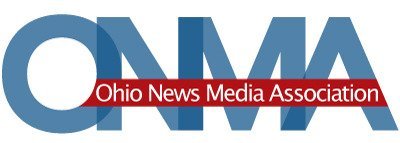Complete Story
07/21/2017
Should we treat Facebook, Google as friends or foes? Or both?
By Dennis Hetzel, President and Executive Director
No matter the final outcome, I think the News Media Alliance’s decision to confront Google and Facebook is something every ONMA member should understand. The potential of your digital revenue and perhaps your long-term survival could depend greatly on the outcome.
I offer a few links below to help you in that process. And, we also seek your advice about what our role should be as a state association that lobbies on your behalf. With that in mind, I share my biases and perspectives for your review.
NMA’s president, David Chavern, recently threw the gauntlet in a Wall Street Journal column, urging Congress to grant an antitrust exemption that would allow newspapers to collectively address the digital duopoly that Google and Facebook have become. This situation is not hype. Media analyst Ken Doctor cited figures this week that more than $7 out of every $10 spent in digital advertising goes to Facebook and Google. Only 1 percent of the dollar growth in digital advertising in the third quarter went to companies other than Facebook and Google.
Critics of Chavern and the NMA note that Congress is unlikely to do this – no argument there – and that confrontation isn’t the answer. Other groups, like the Local Media Association, urge cooperation; to keep working with the two digital behemoths to encourage and convince them of the need to show greater respect for local media’s role as news providers for their content machines.
Some say everything will be OK in the long run. We don’t want or need to antagonize Google and Facebook. After all, newspapers survived threats from television and radio, so why is digital different?
It’s different for two reasons: Google, Facebook and other aggregators don’t spend a penny to create the content that they monetize. Television and radio as well as digital news outlets ranging from small local websites to the likes of Politco.com and Vox.com have major creation costs. Just like we do.
The second reason ties to Amazon.com, Wayfair.com and others. Digital shopping is blowing up the business model of our major advertisers. It’s one thing to compete with broadcast, outdoor, cable and direct mail competitors for shares of the pie. What happens when the pie shrinks or disappears? As I’ve noted to legislators when asked about financial challenges, when Macy’s or Sears closes a store, you have to sell a lot of ads to the local pizza shop to make up for it.
My personal view is that there is nothing to lose. While print is not going away, the local news business model is under historic assault. It doesn’t matter what, if anything, should have been done differently in the past. Local journalism and our communities will not be well served if news and information is primarily supplied by neighborhood bloggers and social-media curmudgeons. We need new revenue streams, and digital aggregators should be part of the answer.
Unfortunately, the NMA went solo. There should be more consensus, not only from within our industry but with allies from local and regional news creators across all platforms. Successful negotiation requires leverage, and Google has cash reserves of more than $70 billion. The lack of consensus weakens us politically.
The LMA’s view and the NMA’s view are not mutually exclusive. We should work with these digital giants on both policy and partnership levels. Maybe a dose of potential confrontation can increase Google’s and Facebook’s sense of urgency to move faster. For now, Google and Facebook have every reason to toss crumbs to newspapers and expect thanks for the fine meal that might be coming if they are so inclined.
But that’s my take. What is yours? As always, your feedback is more than welcome.
Helpful links:
- News Media Alliance release on ‘digital duopoly’
- David Chavern’s Wall Street Journal op-ed (may be blocked by paywall)
- Ken Doctor’s “Newsonomics” analysis with many helpful links
- New York Times coverage of NMA initiative
- A Sacramento Bee column on why something has to give
- Local Media Association position statement




